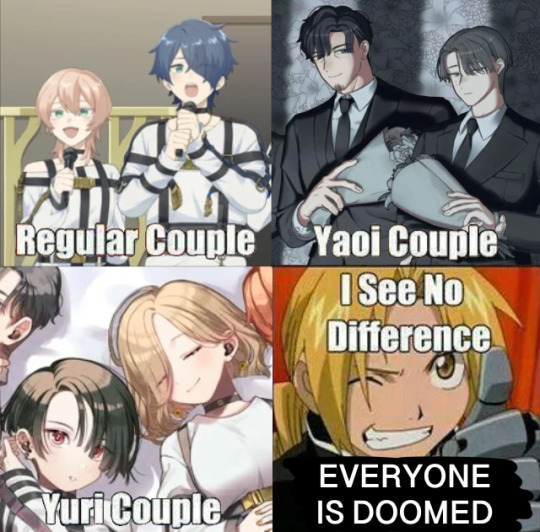Text
song: ROT FOR CLOUT by JamieP
#bringing this back for Yuno <3333#finally watched her T3 MV yesterday.. i love her.#i still need to listen to the VD tho...
32 notes
·
View notes
Text
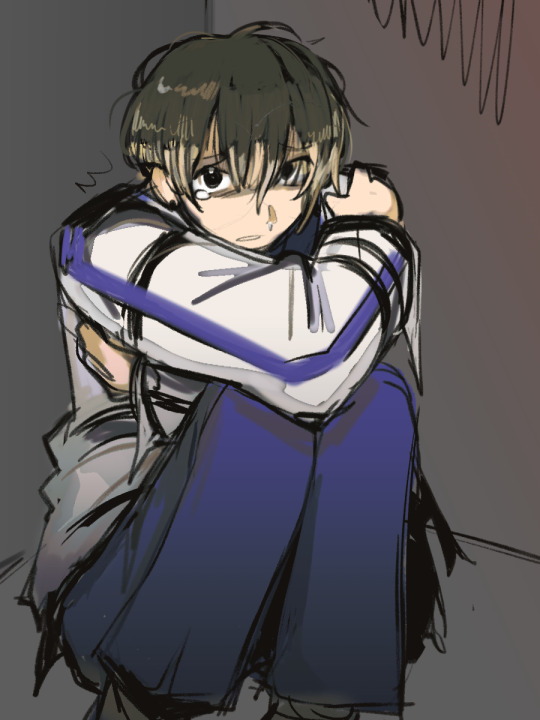
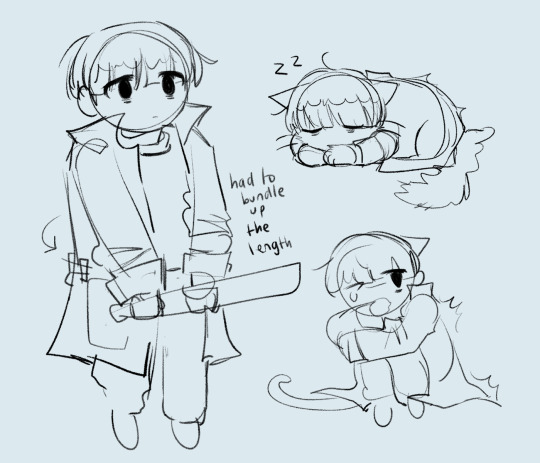
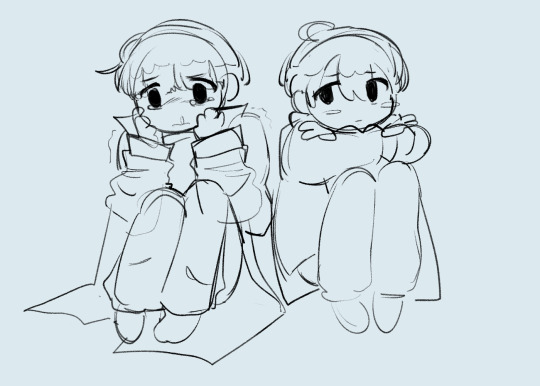
yamanaka give us mikoto child alter in the t3 vd or we riot
63 notes
·
View notes
Text
hello other vocaloid producer x voice actor (x utaite) music project... shh no it's okay.. my wife (milgram) will never find out <33
#milgran't#this post was brought to you by me discovering bokuyona#milgram and i are in a toxic but committed relationship and bokuyona is the person in our polycule who is just there for the ride
5 notes
·
View notes
Text
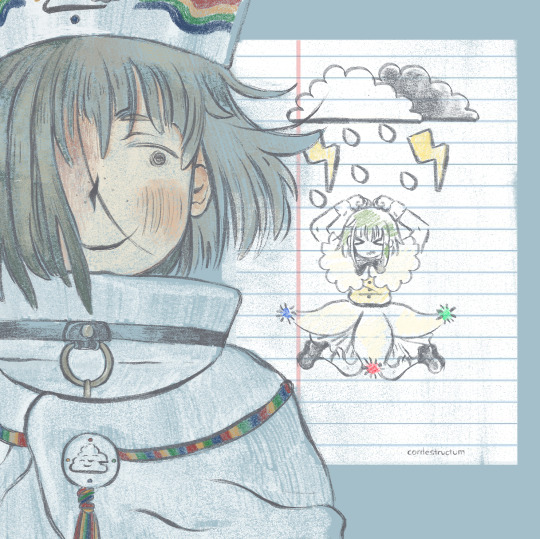
the MAGIC is in believing, there is no righteousness in broken promises
753 notes
·
View notes
Text
I feel like Distoartion by Abu-Se-Ken is a good Mikoto Song...
3 notes
·
View notes
Text

milgram analysis: the orekoto (オレ) of Neoplasm is not the orekoto (俺) of John Doe
analysing both orekotos and then some, how mikoto's dissociation misdirects us, and how mikoto's DID operates to help him function, express what needs but cannot tolerate, and to cope with shame.
will be referring both to milgram-en's (John Doe, Neoplasm) and Maristelina's (timeline) translations. thank you for your work!
note on names: for the purposes of this post:
mikoto refers to the person/system, all parts included
'mikoto' refers to any normative mikoto, ie. not either ore. i'm not going to assume the normative mikoto from John Doe is the same alter as the normative mikoto in Neoplasm, because i don't think they are, but that's for another time. for now, I am grouping them together, because, functionally, mikoto's normal parts serve the same purpose and role for this discussion.
ore (俺) and mikoto (俺) refer to the mikoto that appears in the John Doe (Trial 1) voice drama and attacks es.
ore (オレ) and mikoto (オレ) refer to the mikoto that appears in the Neoplasm (Trial 2) voice drama and claims to be the alter who commit murder.
if you can't read japanese, just remember that any name with one japanese character (俺) refers to the ore of trial 1, and any name with two characters (オレ) refers to the ore of trial 2. these are how both ores' personal pronouns are spelled according to the official scriptbooks, respectively.
i also use the word 'unacceptable' 'intolerable' etc. a lot in this analysis. please note i don't use this word in a judgemental way. i will always mean it in the sense that whatever i am referring to 'cannot be accepted/tolerated by mikoto/the world he comes from'.
i'm working with translations and mikoto is a complicated character, so please forgive any slip ups!
thank you for reading.

introduction: there's two orekotos?
mikoto's case, as i've criticised in my last major essay, is often reduced to a conflict between how one votes a system of one 'innocent' personality and one 'guilty'.
as part of the reducing of his character to a split personality trope, it is popular and easy to assume that mikoto only has two major alters: 'mikoto' (who appears normative, uses the boku personal pronoun, and has a confused, sociable demeanour) and 'the other one' (who appears more aggressive, uses the ore personal pronoun, and noticeably switches in at some point during both VDs).
i'm also guilty of this assumption. despite having a sense that things were not that simple, i have assumed, for convenience, that both ores were the same alter, mostly because the ore (オレ) of Neoplasm expresses familiarity with ore's (俺) actions in John Doe (in that he references the event immediately after switching in, amongst other things), and i had no major reason to question that continuity.
at the end of the day, mikoto is mikoto, and since i had (and still have) no interest in attributing guilt to any specific alter, i didn't have a major reason to deduce which alter 'did what'.
(it's also more important to me to dissect what alters think they did and identify with than literally did, because its in how alters psychologically divide up their life and actions once they've happened that their purposes for existing and dissociative functions shine. my last essay was also almost entirely focused on Neoplasm in isolation, so i stand by most of what i said — just replace any assumptions that ore (オレ) is ore (俺) with their new relationship that i'm about to identify.)
all this said, despite surface-level similarities (seeming to use the same personal pronoun, both speaking roughly, existing as a protective force, and identifying as/presenting themselves as the archetypal 'monster'), the way these two alters — ore (俺) and ore (オレ) — function and think are also very distinct from one another. despite the intentional misdirection that would have you assume they are the same part, both ores display very different approaches to responding to and coping with mikoto's life and traumas, and we have seen them emerge respectively based on mikoto's different, changing circumstances within Milgram and the triggers he encounters.
after the extent of this fully dawned on me the other day, it also occured to me that distinguishing them could be very clarifying for how mikoto has grown to function and cope with his life and actions, and also, maybe, finally shatter the illusory binary that surface-level fanon is so attached to.
so. enjoy.
main body 1: psychoanalysing the ore (俺) of John Doe



the ore (俺) that appears in John Doe switches in after mikoto begins to have a panic attack at es' ceaseless prodding.
we can analyse what seems to have triggered mikoto (俺) forward as a starting point for deducing this part's purpose and understanding where mikoto's headspace was at to contextualise his behaviour, so let's assess the situation.
normative 'mikoto', who is present for the majority of John Doe, presumably exists as an alter to allow mikoto to function and engage with people. he seems to do this by having no awareness (or at least, identification) with anything shameful and intolerable, including his murders, and identity as a killer.
therefore, es' insistence to 'mikoto' that he has killed pushes mikoto into a situation that this normative alter is fundamentally unable to handle. es' suggestion of dissociative amnesia also directly attacks the plausible deniability and dissociation normative 'mikoto' clings to to cope. in order to protect himself and preserve his dissociative defense mechanisms, mikoto finds himself required to switch into an alter more suited to this situation, and disengage normative 'mikoto' from this psychological attack.
it is also worth pointing out that es is an authority, and an abusive one at that; considering that mikoto has suffered workplace abuse (as seen in the relentless texts from his chief outside of work hours in Double) it is almost certain that mikoto has been belittled, scapegoated, and pushed to his limits by higher-ups at work before. this situation that es is subjecting mikoto to is not only psychologically overwhelming to his normative alter, but also emulates a source of trauma for mikoto, and thus will absolutely trigger his fight/flight/etc.
lingo: fight/flight/freeze/fawn are words used for different areas of common stress and trauma responses. the principle is, when faced with an overwhelming threat, you may become aggressive and combative (fight), may become restless and want to escape (flight), may shut down (freeze), or may try to appease the threat (fawn).
mikoto is currently in an interrogation room, within Milgram: he cannot run. simply shutting down will not stop es from provoking him. and he has tried to appease es, to be friendly, and seem pathetic, and es has not wavered. the only real option left for mikoto's completely fried nervous system is to remove normative mikoto from the scene, and then force/intimidate/beat the threat into submission.

whew, what an adrenaline rush.


mikoto's (俺) initial demeanour is mostly an expression of his fight response that has been triggered and rage at this situation that 'mikoto' could not handle. mikoto (俺) lashes out at es, yells, curses, and loudly expresses that es' prodding has been far too much for him. he's pissed, and honestly, i don't think he's overreacting. he's far from the first prisoner to attempt to attack es, and he only does it when pushed to his absolute emotional limit, on multiple accounts.

as the scene progresses, mikoto's (俺) rhetoric becomes reminiscent of abusive people of power. a friend i have has pointed out that these lines in particular sound a lot like what a shitty, ageist boss would yell at a young new recruit to verbally abuse them into submission and impose their authority. it's likely ore (俺) is emulating the kinds of things people have said to mikoto, that have forced him into submission, to protect himself, in the hopes that he can turn the tables on es and reap the benefits of becoming the abuser, so to speak. he refuses to engage with whatever es is saying, and focuses on establishing his power through force and verbal abuse.
this bit is speculation, but i do think the fact that es is on the smaller side definitely helps mikoto, triggered into fight response, feel like he should be able to hold power over him. mikoto may see himself in es and feel incredibly angry that es, while small, is in a position of power that he himself never had, with mikoto therefore wanting to put them in their place.


ore (俺) also projects a demeanour of being somewhat sadistic, likely because of just how fucking angry he is at this moment, and especially because es is not easily slipping into the fawning role that mikoto would in his position. he also may be enjoying the high of not being the victim for once, and now that he's in this position, wants to make the most of it, and really prove his point.
essentially, mikoto's (俺) demeanour communicates, don't mess with me, i'm bigger than you. i won't lie down and take this shit, and you have no business hurting or challenging me.

i know this is from neoplasm and is ore (オレ) speaking. i'm using it to illustrate what 'mikoto' does not not do (ie. not cry himself to sleep, not suffer in silence, fight back).
when applying ore (俺)'s demeanour back to how mikoto typically presents and conceptualises himself, it becomes very obvious that everything about mikoto (俺) is intolerable and unacceptable to mikoto as a whole.
being angry, to mikoto, is not acceptable. expressing anger and fighting back against injustice is not acceptable. challenging your place in the social hierarchy and acting outside of socially acceptable behaviour is not acceptable, because all of these are expressions that would lead to dire consequences in his life and within his culture, despite being natural human emotions and expressions.
if these rudimentary and necessary human emotions and rights are unacceptable to mikoto, it can help, psychologically, for the part that handles/contains/expresses them to present themselves as a different sort of person. by wholly dissociating himself from this side of himself — such as this episode, or any other instances of standing up for himself or feeling unacceptable feelings — mikoto can protect himself, and have these unacceptable parts, without compromising his self image; 'mikoto' remains unchanged, unrelated, untainted, because it was absolutely 'not mikoto' that did or felt those things.
what a lovely dissociative contradiction.
the further mikoto (俺) is from how mikoto typically presents, the easier it may be for mikoto to reassure himself that anything they do was 'not him' or 'not real' and entirely cut himself off from identifying with or processing that memory or act. therefore, appearing sadistic when expressing his anger at injustice is not only practical for successfully intimidating es, but may also be part of ore's (俺) (and many of mikoto's parts') presentation as the archetypal 'monster', and clearly 'not mikoto', that helps to reassure mikoto of their estrangement.
this estrangement also helps ore (俺) to protect himself from everything 'mikoto' is associated with (namely, having to be friendly and conscious of his social position, and being a person who tolerates abuse). while the change in accent, personal pronoun, sense of status, the abusive rhetoric he regurgitates, and overall departure from mikoto's typical presenting personality all add to the prior point and to 'mikoto's benefit, it also helps ore (俺) feel like a different person, who is not constrained by having to tolerate things and acting according to his social position. this helps ore (俺) emotionally remove himself from the fact 'mikoto' was trapped and overwhelmed, and allows him to express the intolerable things he does.

unfortunately, emulating the tactics of his abusers and portraying himself as a rough-speaking tough guy who is sadistic and cruel did not go over well with the audience. you might say that this mask was a little too convincing.
we can be almost certain ore (俺) did not fully grasp the position he was in, and the extent of the scrutiny that would go into his behaviour. we can also be certain ore (俺) had no idea he would be unique in being able to attack es, and the ramifications of such.
despite not being uniquely violent as a prisoner, because mikoto was successful in the attack due to the alters loophole, mikoto seems more violent than the others. it also doesn't help mikoto was put under severe psychological pressure, by es being incredibly careless with his dissociative barriers, leading to a sudden and extreme trauma-triggered switch.
it also doesn't help that there is a lot of social stigma in the real world around the mentally ill being unpredictable, violent, and senselessly volatile, and mikoto seemed to align with that, and thus the audience came to conclusions about what this outburst 'meant' about mikoto and the circumstances of his crime.
the audience at large did not like his vibe, and mikoto was deemed unforgiven.
in summary, John Doe ore (俺):
emerges when mikoto is overwhelmed and has his fight response triggered, exhausted of all other options to combatting an overwhelming psychological attack.
presents himself as the archetypal 'monster' (using rough speak, threats, and becoming violent) to intimidate es, stop their prodding at his dissociative barriers that keep him functional and stable, and hopefully prevent further abuse.
main body 2: defining the ore (オレ) of Neoplasm (quick section)
before i dig into Neoplasm, ore (オレ), and ore's (オレ) relationship to ore (俺), i have actually already written an essay and a half analysing ore's (オレ) presentation and motivations in Neoplasm here.
i'm not going to repeat all of my analysis, but i'll summarise the relevant bits, so we are on the same page going forward:
essentially, in Neoplasm, ore (オレ):
emerges coming into trial 2 to be interrogated by es, makes a point to identify 'himself' and only 'himself' as the killer, and spends almost all of his time negotiating mikoto's innocence accordingly.
claims his purpose is to "take it all - bear it all (...) [and] be rid of it."
presents himself as the archetypal 'monster' (using rough speak, threats, dehumanising himself, and making no effort to provide motive or explanation for his murders) to make himself appear unsympathetic and mikoto, in contrast, purely a victim.
you'll see already that the way the two ores function are pretty distinct. despite both having rough demeanours, functioning to protect himself, and evoking the archetypal 'monster', the circumstances in which they come forward and their specific goals in the moment and with their presentations are very different.

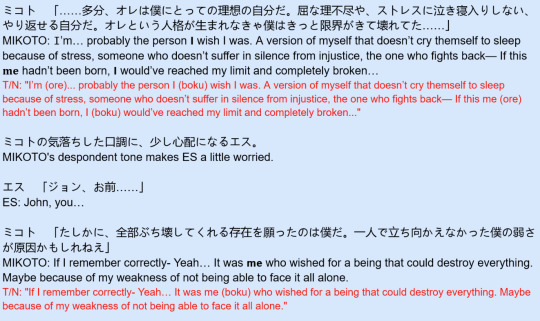
despite this distinction, ore (オレ) does intentionally seem to imply that he and ore (俺) are the same, and definitely does not correct this assumption on es' part. so what gives?
main body 3: psychoanalysing the ore (オレ) of Neoplasm
well, let's analyse the circumstances of ore's (オレ) appearance and callbacks, consider ore's (オレ) self-proclaimed purpose and role, and deduce the practical advantages of misleading es and the audience in this specific way.
very importantly, coming into trial 2 and the opening of Neoplasm, the situation for mikoto has changed, a lot.
firstly, mikoto has been voted guilty once. that is to say, whatever mikoto did in John Doe, did not work in his favour. he's also familiarised himself with Milgram by now, and is more aware of his position. so, he's not going to try what he did in John Doe again.

secondly, despite his 'odd case' meaning he has been free to roam the prison, he is chained and restrained for the events of Neoplasm. this also essentially eliminates the chance of any fight or flight response should he be triggered again, doubly.


differently to what brings ore (俺) out, the ore (オレ) of Neoplasm switches in with little fanfare, after a short period of a very dissociated mikoto expressing that he doesn't understand what's going on.
the specific note that he switches in on is on the note of being accused of things — mid sentence, he goes from passively laughing about his hopeless situation, to expressing irritation at it. before the switch, this 'mikoto' expresses that laughing things off comes naturally to him; it's likely this 'mikoto' is unable to feel or identify with frustration as 'himself', hence, the switch.
i also think, due to ore's (オレ) role (as the scapegoat alter who identifies with acts, takes blame and singular responsibility, and may already be planing to lean into his disconnect from 'mikoto' to absolve him), it was very necessary for him to come forward and negotiate with es at some point. hence, the situation of being interrogated by es (and specifically, the topic of blame) brings ore (オレ) forward.

after es immediately verbally takes note of the switch, ore (オレ) makes himself known; he does not pretend nothing has happened or continue with his train of thought. he immediately calls back to ore's (俺) actions in John Doe, implying that this is the same alter that perpetrated them, and generally associates himself with these parts of mikoto that are typically intolerable to him.
(note that while in the original text no specific personal pronoun is used, the obvious implication of bringing up the attack on es immediately after switching in is to create a connection between 'that' ore and 'this' ore. also, assuming the audience has a rudimentary understanding of DID, this alter not having amnesia for the event would also imply that it must be the same alter that perpetrated it.)
in my opinion, and the reason i was typically reluctant to interrogate which of mikoto's alters 'did what', the only reason for calling back to an alter's continuity like this is to establish blame. this goes double when the continuity involves associating yourself with typically intolerable (and socially unacceptable) acts, and triple when, as we have seen as Neoplasm progresses, this alter is generally entirely concerned with taking blame for 'mikoto' to relieve him of culpability and negotiate his physical and psychological freedom.
assuming ore (オレ) is associating and aligning himself with ore's (俺) actions as a way to take the blame for them, there are a few ways we can make sense of this decision.
1: in light of what we know about ore (オレ) as a scapegoat alter who clearly hates himself, who has taken responsibility for their murders to protect 'mikoto's self-image, one likely answer as to why he takes responsibility for ore's (俺) outburst is because he is an alter that handles shame.

even towards the beginning of Neoplasm, ore (オレ) expresses a desire to be dehumanised, and implies that typically, he is not considered human, likely because that would make matters of shame simpler: he is irredeemable, he is a monster, he is everything wrong, this is simply who he is.
this makes it likely to me that whenever mikoto expresses intolerable things or feels shame/is shamed for acting inappropriately, it would be the job of this alter to internalise the emotional fallout, reinforcing this self-image, all slightly away from normative 'mikoto', to protect 'mikoto's self esteem and ability to function. this existence would require ore (オレ) to be aware of any shameful things mikoto has done, including any standing up for himself as mikoto (俺).
mikoto essentially disowns and vilifies anything he does or expresses he considers socially unacceptable through having mikoto (オレ), who sees himself as a 'monster', take responsibility for all his shameful acts. ore (オレ) also handles and makes sense of the overwhelming shame mikoto feels for these acts, expressions, and abuse he has suffered through this way of seeing himself.
this implied long-term vilification of and 'inherent badness' to ore (オレ) could also tie in to a possibility of ore (オレ) existing before the events of milgram, as a part of mikoto that handled shame in his daily life and due to his everyday traumas.

it is also very common for other alters to reinforce introjected abusive rhetoric and lash out at parts that contain and handle shame.
when the person, as a whole, has been made shameful, but most alters cannot handle that level of shame, a typical response is for most alters to dissociate from it, and instead emulate the abuse they have suffered and inner critic they have developed onto only a part of them. this dissociative scapegoating protects the majority of the system from the feeling and experience of being shamed and belittled by themselves, and contains the overwhelming shame in one extreme, but often repressed part.
the fact the majority of mikoto's alters' seem psychologically unable to handle being or acting shamefully, instead blaming and verbally abusing a part who takes responsibility and is scapegoated for everything, and feels shame for everything, is textbook.
i find it likely that to protect himself from abuse at work, mikoto subconsciously separated himself from the 'him' that felt shame, and this alter grew to develop the belief that he must be, and may deserve to be made, responsible for everything.
2: in light of what we know about ore (オレ) as a scapegoat alter who intends to sacrifice himself while bearing all mikoto's sins, one likely answer as to why he takes responsibility for ore's (俺) outburst is also because mikoto's (俺) acts have put him into deep trouble.

towards the beginning of Neoplasm, ore (オレ) comments that one reason he feels he has been out a lot, as opposed to normative 'mikoto', is because of their guilty verdict. i find this makes sense. because 'mikoto' was labelled as culpable for his actions and the audience did not buy the alter excuse, mikoto has been forced from normalcy and forced to reside in a shame part more suited to this reality, where 'mikoto' is unforgiven, socially unacceptable, and labelled as 'dangerous' and otherwise ostracised.

mikoto, in general, does not seem very happy about this. after all, it's in his best interest to remain normative and functional and socially accepted. therefore, mikoto needs to work out how to be forgiven, and overcome the social predicament he has found himself in (both in terms of being a murderer, and being considered a 'volatile' mentally ill man due to his outburst).

the strategy mikoto lands on in Neoplasm comes in the form of ore (オレ) scapegoating himself for the murders, claiming to es that he perpetrated them without mikoto's consent or control, yada yada, as explored in my last essay.
considering the predicament mikoto is in is not only about being a murderer however, and ore (オレ) considers his role to "take it all - bear it all (…) [and] be rid of it," it would also make sense that for his attempted crucifixion, ore (オレ) would take on the responsibility of everything that has rubbed the audience the wrong way, before promising to vanish.

this includes his murders, but it also includes mikoto's (俺) intolerable and socially unacceptable outburst in John Doe, and mikoto's general being considered 'a man with alters, that make him dangerous'.
ore (オレ) wants the audience (and also, probably, himself) to think that after he has 'disappeared', everything unacceptable about mikoto will be gone; the 'alter that murdered', is ore (オレ), and will be gone, the 'alter that lashed out in John Doe', is ore (オレ), and will be gone, and perhaps even 'mikoto's alters in their entirety, that frighten people', are only ore (オレ), and will be gone.
hence, ore (オレ) takes responsibility for everything, before promising to vanquish it, accumulating every symbol and act and demeanour that may have made mikoto unforgiven, and promising to be rid of it, in the desperate attempt to return normalcy and forgiveness to themselves.
(in fact, he even may have implied he and ore (俺) are one and the same, and thus leaned into the presumption that there are only two alters, to make his (オレ) decision to vanish seem like a 'cure' for mikoto's DID (in leaving only the 'normative alter' in existence), and therefore free mikoto from the socially unacceptable status of being an 'othered' mentally ill man with alters, a status that has become apparent as Milgram has progressed and mikoto has been scrutinised. i hope i don't have to explain that you don't 'cure' DID by lobotomising yourself, and mikoto is currently learning this the hard way, based on his T3 lines, but as long as the audience is swayed to this way of thinking, and it is possible ore (オレ) genuinely believed removing all trace of mikoto's mental illness in 'vanishing' 'his alter, who is responsible for everything unacceptable' could help, is all that matters.)
this, actually, brings me into the third element, that i'm going to make a nice little title for, despite being a continuation of the ore (オレ) psychoanalysis, and another possible reason for why he gives us the impression he and ore (俺) are the same.
main body 4: mikoto's convenient false binary

as i said when i opened this essay, mikoto's case is often reduced to a conflict between how one votes a system of one 'innocent' personality and one 'guilty'.
when it comes to approaching and attempting to understand mikoto's crime, many people abstract him, and reduce him to a stock, hollywood, split-personality stereotype. this model, while simplistic and reductive, is easy for a lot of people to understand.
compared to real DID, in which a person is so conflicted on themselves and their actions that it sometimes feels as if they are possessed, and may not understand what they do or who they are, with a lot of muddy middle ground between self-states, identity and memory discontinuation, and blurring, split personality trope provides clearly defined boundaries.
clearly defined boundaries are an illusion in DID. they are also something a person with DID may attempt to reinforce when something a part of them handles or represents is intolerable to them. drawing a firm boundary in their mind helps them feel that they are separate from this part of themselves, and may help to explain the feeling of separatedness: 'if i feel it, it must be true'.
often, it is easiest for a person with DID to make sense of themselves to see themselves as multiple distinct entities, reflecting the different parts of self they have and the barriers between them. and yet, even so, most people with DID struggle with blurriness and existing beyond the confines they've drawn in the sand to make sense of themselves. at the end of the day, a model for understanding one's self is only a model.
that is to say, DID is messy, contradictory, and muddy.
mikoto, with no real coping mechanisms to overcome his symptoms, at the end of his psychological rope, and on the chopping block in Milgram, with already one guilty verdict under his belt, is not in a position to be messy, contradictory, and muddy.
he needs to be easy to understand. he needs to have clearly defined boundaries.
not only is it personally important for ore (オレ) to take the blame alone for all of his shameful actions, and then disappear, but if ore (オレ) can sell to the audience that there are only two alters, clearly defined, one innocent and one guilty, and play along with how the audience stereotypes and abstracts him into a conventional split-personality trope, ore (オレ) can sway the vote to his favour, and attain a forgiven vote, providing (relative) normalcy and social acceptance within Milgram for 'mikoto'.

by leaning into the false binary, creating false continuation between different normative mikotos and between different scapegoated and unacceptable mikotos, and make it seem as if there is no middle ground between them, mikoto creates a 'good' and an 'evil', a 'guilty' and an 'innocent'. he can compartmentalise everything in him that he feels has caused him abuse, blame all his outbursts and crimes on it, and then promise to vanquish it.
and if, 'without' his unacceptable, parts (who are clearly 'monsters', killers, and act out without reason) he is only his normative selves, who have 'done nothing wrong' and were 'helpless to their other side', and will never cause any issues again, the question of what Milgram's audience should do with mikoto becomes simple.

you vote to forgive mikoto.
and wow, it really worked. well done, mikoto. well done, ore (オレ). well done leaning into your own complex dissociation, the illusion of defined boundaries, and the audience's own pop-culture understanding of DID.
conclusion / tl;dr:
the ore (俺) that appears in John Doe and ore (オレ) that appears in Neoplasm are two separate alters. despite appearing on a surface level to have similar demeanours, and both portraying themselves as 'different kinds of people' to mikoto to help mikoto reassure himself they are 'not him, their triggers, actions, reasons, and motivations are distinct.
while ore's (俺) demeanour, aggression, and rhetoric serves to intimidate and challenge an overwhelming threat and escape from the confines of 'mikoto's identity to allow him to protect himself, ore (オレ) emulates a similar demeanour to portray himself as a shameful 'monster' who does not conform to socially acceptable behaviour and represents everything unacceptable about mikoto, to serve as a scapegoat.
despite the fact they are different, ore (オレ) intentionally leads the audience to believe that he is responsible for mikoto's outburst in John Doe, likely due to his role as an alter who handles mikoto's shame and takes the blame for everything mikoto deems unacceptable about himself, as well this claim being convenient for his ultimate plan to be crucified while bearing every unacceptable part of mikoto, in the pursuit of mikoto's forgiveness.
ore (オレ)'s misdirection also ties into the illusion of alter separatedness and mikoto's false binary, that he both utilises to cope, and to navigate the Milgram audience's expectations, as a strategy for securing his forgiveness, as well.
epilogue / reflection
i accidentally strayed into another essay i'm working on towards the end there. i am fascinated by how mikoto responds to the label of DID and conforms to the audience's stigmas and models they apply to him. a full essay on that train of thought is in the works. hang in there. that end bit was just a taste, i guess.
as always, please let me know if any of this is incomprehensible. i can be wordy, and i may accidentally use inaccessible DID jargon. if i have, please let me know and i will correct it. it is very important to me that my analysis can be understood and discussed (and even challenged!) by a wide audience.
anyway, pat yourself on the back, because, even not including text in images, you've officially read 5k words of nonstop mikoto analysis. this is longer than my 'john didn't do it' essay. holy fuck.
i hope you enjoyed. & thank you for sticking with me

no funny meme this time. go mikoto dance.
107 notes
·
View notes
Text
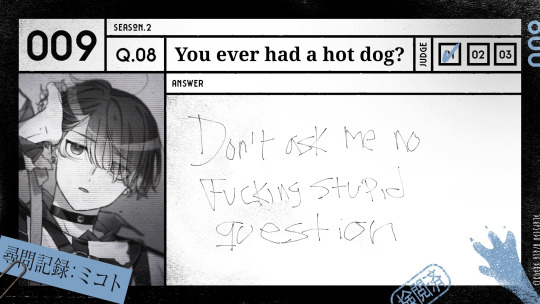
#when things are looking down. i know You Ever Had A Hot Dog? Dont Ask Me No Fucking Stupid Question has got my back....#thank you john
452 notes
·
View notes
Text
today in therapy we were sorta working on trying to establish more communication with parts. and we were focusing on one part in particular who is honestly a complete mystery to me I don't know what the hell is going on over there. anyway. therapist asked if the part had or wanted a name we could refer to them as. and I couldn't answer because all I could fucking think was. haha nice neoplasm reference. this stupid media has ruined my therapy. can't do shit without it being a Prisoner 009 Kayano Mikoto reference.
#mikoto posting#personal posting#council posting#ig#can't have shit in this fandom!!!!#this is /lh im not like actually frustrated lol..#tis simply. funny.
3 notes
·
View notes
Text
if i see anyone try to push for guiltying Fuuta because guiltying him would be telling him the cult is wrong and forgiving him would be telling him the cult is right. it will be on sight.
#Fuuta#i am not doing this shit again. listen to us. listen to us. Its Not Going To Work. It Doesnt Work Like That. Trust Us.#if you think maybe it just didnt work with Amane because xyz reasons. but itll work with Fuuta. thats the devil talking#thats the little voice in your head going ''this didnt work last time but maybe i just didnt do it right. THIS time itll work''#kill that voice. send it to hell#like i can UNDERSTAND. because hey maybe Fuuta will listen because he doesnt have the years of brainwashing that Amane has. BUT#Fuuta may not have the experience Amane has. but hes also in a Hell Situation and this is literally what is keeping him alive#hes not going to let it go. and if guiltying him DOES make him let it go. thats not really gonna help him much either#he'll just go back to T2 Depressed As Fuck Fuuta
9 notes
·
View notes
Text
ok so if mikoto vapes and john smokes cigarettes.. maybe mido hits the bong
36 notes
·
View notes
Text

eueue
585 notes
·
View notes
Text
Another Mafuyu commission fits Mikoto don't let the woke left know
24 notes
·
View notes
Text
listen to Man in the Mirror by RIProducer and think of Mikoto. you're welcome
#Mikoto#it's actually a Moon Knight fan song. and it's great.#but not like super specific To the show. just specific to his DID. so it still works really well for Mikoto <3
5 notes
·
View notes
Text

inspired by:

29 notes
·
View notes
Note
B very careful w severance there's heavy oea themes in the later eps especially
ohhh tyvm for the warning.. 🫡! I shall watch out and Tread Carefully....
0 notes
